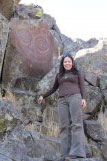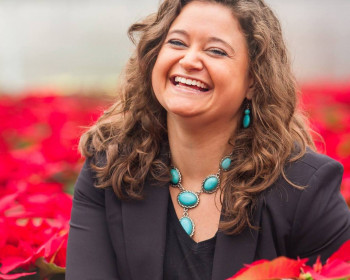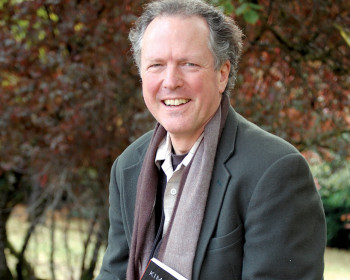‘Two-spirit’ people work to keep Native tradition, respect alive
Open gallery

By Amy Lam. This story reprinted with permission from Street Roots, a nonprofit grassroots newspaper in Portland, Oregon, that assists people experiencing homelessness.
For Se-ah-dom Edmo, her Native community’s inclusion of Two Spirit people had never been in doubt. As a child her parents taught her by example to be supportive of everyone in their community. She remembers her family taking in a young gay Native man that had been expelled by his own family.
The term “Two Spirit” was created in the 1980s as a term to unite and bring together Native peoples with multiple gender and sexual identities. It acknowledges that before colonization, individuals with multiple gender and sexual identities in many Native communities—who today might be called lesbian, gay, bisexual, transgender or queer—were not only accepted, but honored and respected.
During colonization Europeans targeted Two Spirit people with violence because they did not fit into the European Christian concepts of gender and sexuality. However, as described in a statement by the First Nations Collective in 2011, “LGBT history in this land known as America began long before Stonewall. LGBT First Nations people have celebrated multiple gendered people for millennia, and since the European Invasions, have struggled to keep this and other traditions alive.”
“I’ve seen too many Two-Spirit people leaving our community just so they can be who they are. Our community cannot afford to lose any more people. We lose people to alcoholism, diabetes, depression, all these things that hit our community extra hard. We can’t afford to push people out just because they are Two Spirit,” she said. Se-ah-dom is the coordinator of the Indigenous Ways of Knowing (IWOK) Program, a Lewis & Clark College project that works to empower tribal communities through education rooted in traditional indigenous beliefs.
“In many Native traditions, being supportive of Two-Spirit individuals and families has been an ideology that many Native folks still believe in and carry forward,” Se-ah-dom said. “To reclaim traditional practices is an exercise of Native people’s sovereignty.” IWOK has been able to advance this inclusivity work with support from Western States Center’s Uniting Communities project, which aims to raise up the needs, leadership and experiences of LGBTQ people of color in Oregon and Nevada. IWOK and the Center hosted a joint training for Native American Rehabilitation Association of the Northwest (NARA Northwest) staff, because NARA wished to ensure that as a direct-service provider, it was welcoming all members of its community.
IWOK also plans to develop tribal codes and policies that recognize Two-Spirit people. “We hope this resource will provide Tribes in the northwest and across the nation with ideas on how to initiate policy change,” Se-ah-dom said. “And because Northwest Tribes are big economic development centers and employ many people, they are unique allies in the fight for LGBTQ equality in general.”
IWOK also works with members of Portland Two Spirit Society, a newly formed organization of Two Spirit people working to support one another and engage the community.
“Homophobia and transphobia are harmful to our spirits. Native people think and operate very holistically. Hostile and negative attitudes towards any members of our community affect us all,” said Se-ah-dom.
The collaboration between IWOK and NARA Northwest not only continues; it is blossoming. On Feb. 11, together with Portland State University and Western States Center, they will be hosting “Honoring the Two Spirit Traditions: A Place for Everyone,” a day long training for Native Americans. “We are hoping for a full representation from our community, from elders, youth and parents.” [Listen to a radio report about the training from Oregon Public Broadcasting.]
Amy Lam is the Development & Communications Associate at the Western States Center, which aims to build a progressive movement by supporting grassroots organizations. The Center’s Uniting Communities project works with organizations based in communities of color to advance LGBTQ equality.
Graduate Communications is located in room 205 of Rogers Hall on the Graduate Campus.
voice 503-768-6054
fax 503-768-6053
Graduate Communications
Lewis & Clark
615 S. Palatine Hill Road
Portland OR 97219

